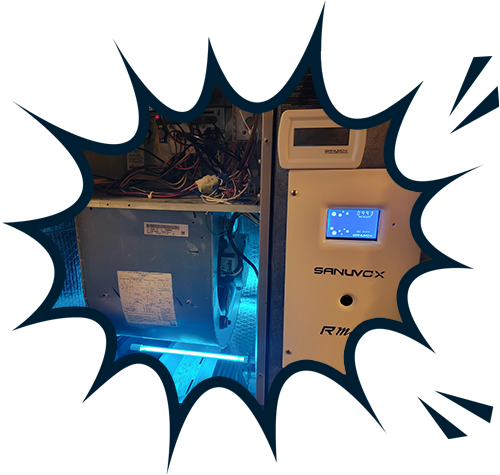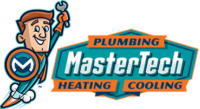My water heater took a shit and Mastertech was able to get me penciled in quickly. Logan was very knowledgeable and walked me through the whole process, giving me pros and cons before any work was authorized. I’d strongly recommend not only Mastertech, but Logan as well.
Logan my technician was wonderful and very informative. He got straight to the issue and had informed me of the cost prior to scheduling the next appointment
Ryan was helpful and got our drain cleared quickly!
Logan helped finish the job when our clog returned shortly after the first call. They honored their warranty as well. Their staff is always friendly and eager to make it right. Would recommend.
Fantastic job this afternoon fixing a plumbing issue! Super friendly service and very prompt! Ryan is great!
Ryan was great the job was done in no time! He even gave me some suggestions. Will use your service again in the future
Ryan explained everything from start to finish, in a way I could understand. He made sure everything was fixed before leaving (second plumber this week) We will definitely save his number and use him for any future needs!
Friendly, professional and competitively priced. Been a customer for a while, and we're never disappointed.
Old house. Old sewer pipes. Called MasterTech and they sent Ryan who did an amazing job. Quick and easy clean out. Arrived as promised. Very personable and professional. Ryan was able to answer all my questions. Reasonable cost. Recommend.
Prompt scheduling and on-time arrival of technician (Logan). He was friendly, informative, thorough, and happy to answer questions. He was able to take care of the problems, and I am confident in his work.
Ryan from MasterTech arrived promptly and diagnosed and fixed our issue quickly. He was professional and friendly and we would definitely call them again if I needed to. Thanks MasterTech.
Came out quickly and solved our problem was very helpful
Gary was awesome. It turns out I didn't have a plumbing problem, but a dead rodent problem. Thanks MasterTechGary and Makenzie were great. They let me know precisely when they would arrive. They gave me an estimate on how long it would take and exactly what they would be doing. I had a clogged sewer line full of tree roots and all is clear now. No more backups. Thank you MasterTech for another great job well done.Success!!! I had a clogged bathroom sink that was barely draining and needed to be cleaned out. My service tech Gary was very friendly and efficient. Now I can wash my hands without the sink backing up. It was a pleasure doing business with him and MasterTech.Once again Master Tech to the rescue. I had a leak in the basement and it wasn't a broken pipe, just a clogged line which he cleaned out. It was gross 😝. Great work MT.
Logan did an excellent job with the new plumbing. I highly recommend Master Tech.
Ryan Arrived timely made sure everything was good before he left. Very professional
Logan has been to our house a few times now and is always friendly, timely, honest, and efficient. From frozen pipes to low water pressure, Logan has solved every problem we’ve had so far. We will not hesitate to call Master Tech for any future problems we run into.
Enjoyed discussing situation and Andy explained things fully. He made sure I understood options. Andy was professional and pleasant to work with.
Very professional, explained process & asked if we had any other concerns.
Gary with MasterTech was amazing! He was very professional and pleasant. He was knowledgeable and seemed genuinely interested in helping us and making sure everything was done properly. Master Tech responded quickly when we needed help. The prices were fair and less than I had feared a good Plummer would charge. I would absolutely recommend MasterTech. I’ll be calling them with any future plumbing needs.
Great service! They were able to get me an appointment in just a few days, communication was very thorough, and price was fair. Kyle was friendly, efficient, and very professional. He did the job I called about and didn’t try to upsell me at all (that rarely happens these days). Definitely recommend MasterTech!
Nice for availability on weekends. Some minimum rate procedures (e.g., sewer line $300) can be expensive for the amount of work required. I might suggest that if the minimum cost is above certain value that the weekend service call be waived. N
I had an emergency plumbing situation. When I called no one was available to come out immediately. I did get the water turned off and the flooding was stopped. Long story short as soon as someone was available within an hour, I received a call from the Tech that he would arrive within 20 minutes. The Tech that came was courteous and professional. The Parts needed were on hand and My problem was taken care of quickly and efficiently. Thank you.
Tyler performed an annual servicing of our AC unit. He addressed our concern that our unit was getting some age on it and installed a kit to help with hard starts to extend it's service life.Matt made an unscheduled trip the following day when an unexpected problem cropped up.We have an older house and opted for Master Techs monthly service plan. We have used the benefits several times now and we always get the best service. Their front office is very well organized, and they have good software. As soon as I call they already know everything about our service, right down to knowing I go by my middle name. We appreciate that level of personal connection.Thank you to the folks at Master Tech!
Very professional and helpful and gets the job done quickly. The team did a great job.Thanks Logan and Gary!
Our showers were not getting as hot as our sinks and our water heater was not draining like it should have been so we gave them a call. Logan came out the same day a few hours later and was able to figure out what was going on and get a new water heater ready for same day install. Very friendly and helpful would highly recommend!
Macenzie came and changed filters and checked on the HVAC unit at my daughter's house. Very knowledgeable and courteous. Very professional!
I'd highly recommend Adam from MasterTech to anyone in need of a plumber. He took my house from a lemon to a heaven. I cant imagine the situation I would be in if I hadn't called MasterTech first! We are lucky to have such a great company serving our community!
Amazing service—showed up within an hour of calling. They were respectful, courteous, and treated the home with great care.
Andy was amazing! He took care of us so fast, answered all of our questions and even made some recommendations for the future! 10/10 recommend!
Logan was very friendly and knowledgeable. Walked me through the steps he was taking. I would use him again if needed
So grateful they were able to come out on short notice and rescue us from 90 degree heat. Our tech Kyle was prompt and polite and got everything finished in under an hour.
Got us on the books same day. Start to finish has been a great experience.
The technician, Logan was very knowledgeable, efficient and took the time to answer any questions that I had.
Had no hot water this morning and water on the floor. Called and Logan arrived soon. Very fast diagnosis. Logan was extremely nice and responsive.
Logan is professional, and quick. When the hot water isn’t working that’s exactly what I expect. New water heater is already on its way. Thanks!
Logan with MasterTech is professional, kind, courteous and respectful.
MasterTech is responsive and complete. My tech Max is an expert at his craft and makes easy work of tough jobs. Thanks MT!
Very nice tech and knowledgeable
Ryan was great. Friendly and did a great job explaining everything.
Logan helped out big time! All went smooth great communication and efficient work.
As a new homeowner searching for and finding services you can depend on can be quite daunting. I have worked with a couple of plumbers since the purchase of my home and have been left confused after work was done. I am happy to say that after working with MasterTech servicemen I am overwhelmingly satisfied with the service that has been done on my home.Russ, Matt and Danny are to be commended for their friendly, professional and knowledgeable service.Thank you all for taking the worry out of my home maintenance needs!
McKenzie and Scott came over to unclog my toilet. They were very nice and helpful. They talked me through things and answered all my questions. I definitely would recommend them to others. Thank you both for saving the day. When I need a new toilet I will definitely reach out to Scott to replace it!
Gary came out and installed a water heater and a hose bib out back so we could water the garden easily. We’ll definitely be using these guys again. When you call I’d recommend asking for Gary.
Logan can in and did a great job diagnosing my water pressure issues and fixing them for me thank you
Unfortunately for me I know that Mastertech can usually get to work on your issue the next day, which is important in heating/cooling/plumbing situations.On the expensive end, but they are professional, personable, and quick.They also try to do the least expensive thing, and fix before replacing, if possible.I’ve had Logan here twice for different problems, and he has made unpleasant home repair experiences easier.
Max was great! Wonderful young man. Answered all my questions. Good job!⭐️⭐️⭐️⭐️⭐️
Very pleasant experience he went through all the options of what could be the payment before starting. Highly recommend.
Logan was a pleasure to work with - very friendly, courteous, professional and straightforward.
I am very happy with their service. My technician Ryan He was very professional courteous. He explained everything to me every step away and make me feel comfortable with the whole process. Thank you Ryan five star plus
Logan was thorough, friendly, and knowledgeable in inspecting my plumbing systems and giving quotes for water softening and filtration.
Thank you so much, Gary! Incredibly honest. Gary fixed a shut off valve for me that a previous repairman had overlooked. He also measured for a new sink drop-in and made a recommendation on a dishwasher install. I really appreciate your help!
Sevice call. Tech (Mac) arrived promptly on Memorial Day. Assessed the problem quickly and reinstalled the garbage disposal unit.for a reasonable cost.
Logan came out quick and replaced a PRV on our main water line in an hour. Best service I've had in a long time!
Adam was prompt, friendly and professional. He explained the problem and solution clearly and completed the work efficiently. It was a great experience!
Our technician Adam Buck was professional and did an excellent job.
Logan was super nice and helpful during his inspection. He checked everything thoroughly and was able to answer any questions I had. I always like using Mastertech for all my plumbing and HVAC needs.
Brilliant, fast, interesting. Excellent in every way
MasterTech is my go-to company for the plumbing needs at all of my properties. They are always prompt and extremely respectful, to both me at my home and to my tenants, and they often have availability for same-day service. I also love the convenience provided by their app. I’ve ordered, approved, and paid for expert service from several states away.Most recently, when I needed a water heater replacement at my house, MasterTech sent Logan to assess the situation on the same day that I called for help. He quickly assessed the problem, communicated with me via phone, and set up a replacement first thing the next morning.The tech the next morning was Andy Hoover. Andy showed up right on time. He took the time to explain what he was going to do and then educated me on the operation and future maintenance of my new water heater. During the process he cleaned where the old water heater had been located and left our utility room cleaner than he found it. (I cannot say the same for other companies I’ve used in the past). Andy even made friends with my lunatic Australian Cattle Dog mutt, which was nothing short of a miracle.Fast service, good customer service, reliability, and convenience are all very important to me. MasterTech has always provided all four.
MasterTech got out to my home to diagnose a problem very quickly. The technician was very knowledgeable and honest and gave me suggestions on how to solve my plumbing problem, as well as offer solutions for preventative maintenance I had questions about.
Logan was very professional and caring about my situation. He gave me good information to help me decide next steps.
Ligan explained all scenarios for us and was very competent and friendly.
Outstanding in every detail! Explained the situations and options to make things better! Ended up adding additional work that we were planning to do but decided to bundle everything and get it done!!
Logan was great.Fellow small town guy like me.
Ryan was great! He got to my home within a couple hours after I called MasterTech and fixed the issue (tree roots growing into pipe). He is also very dog friendly and gave my dog lots of pets 🙂
Gary Buck did a great job fixing my leaks. Major headach relief. He was very professional. And made sure we were satisfied. I would recommend MasterTech anytime.
Great work great employee you should hang on to him.Thank you for your service.Andy Hoover is the bestI will always call you in the future.5 stars
Gary was fast, friendly, and super knowledgeable. I won’t be using anyone else for my plumbing 🪠 needs. Thanks, Gary!
The Staff were friendly and they got the work done efficiently. Great all around.
Adam Buck is amazing! He came over hours after our sewer line backed up into the basement and cleared the line out. We are so grateful for Master Tech!
Thank you, Macenzie for all your work. It was a great job.Had a great experience...nice employee, experienced and very professional. Glad I used Master Tech. Thank you.
The tech arrived on time and as announced. She was very friendly, professional and knowledgeable. She performed the work in a highly efficient & effective manner to fix my problem. I was very impressed by her skill & speed & friendly yet professional approach & demeanor. I would recommend this company to others without reservation.
Answer questions about what I needed to know.
Logan was prompt, friendly and knowledgeable! He took the time to explain and was very thorough in his work. What more can you ask for in a technician?
Excellent customer service! Had a main line leak and was able to get serviced same day; Logan and Max were both prompt, professional and explained everything thoroughly with the repairs and updated equipment. Overall felt very taken care of and a huge weight off our shoulders from their help!!
Friendly, efficient, and competent service. Reasonable pricing. I would recommend!
Tyler E[2] was awesome and informative throughout the process.
First time customer. My call was for standard HVAC maintenance for the season plus a minor fix from a previous company. The Tech was professional and did excellent work.
He was so sweet. I have an escape artist dog. He made sure that little Houdini stayed away from doors as he came and went
T2 (Tyler E) did an awesome job with our annual HVAC system maintenance!
Logan was great, very quick, knowledgeable and friendly.
Logan was great. Professional and skilled.
Our serviceman, Kyle, was fantastic! He was thorough and knowledgeable. He walked us through every procedure he was performing on our a/c, heat, and water heater. The office supplied him with items he needed to complete tasks if he didn't have them, including a new water heater. He worked for 6 hours and was pleasant and busy every minute he was here.
Mastertech (specifically Tyler Ison) is amazing!
Fast, friendly, and professional!
Excellent service and incredibly friendly! Matt and Tyler was extremely knowledgeable and helpful in explaining plumbing basics, and he went above and beyond to find a solution for our request. Fantastic work – I highly recommend!
Our technician, Adam was so nice. He was very timely and friendly. Will ask for him again. Thanks Adam
I feel like they are neighbors! They provide quick service and reasonable rates. The technician came today after making an appointment last night at 5 pm. I think this technician has helped us 5 times over the years. It's nice to see the same person.






